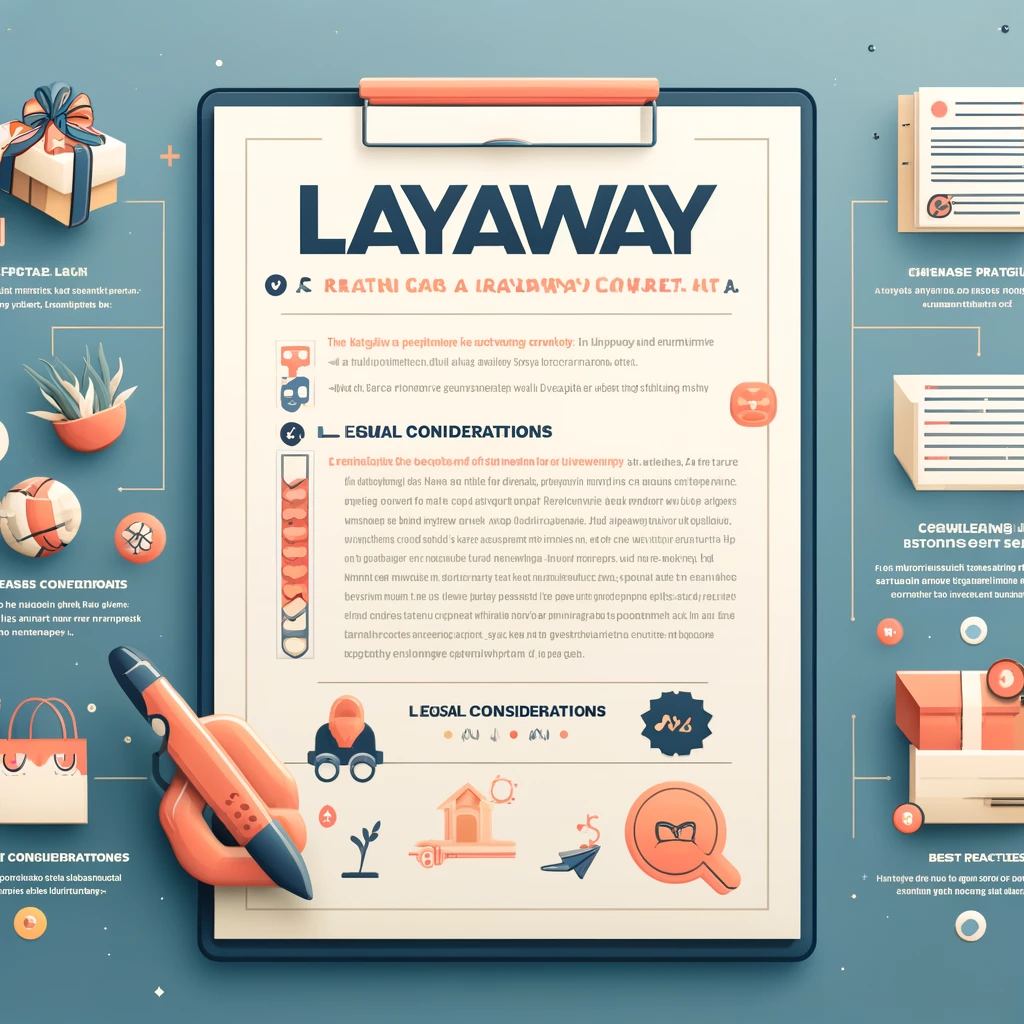
In today's retail landscape, offering layaway plans can be a strategic move to increase sales and build customer loyalty. Layaway plans allow customers to reserve a product by paying a deposit upfront and then completing the payment in installments over time, without the need to qualify for or use credit. For retailers, this means potentially higher sales volumes and the ability to reach a wider market. However, the success of a layaway program hinges on a well-structured layaway contract. This comprehensive guide dives deep into crafting effective layaway contract templates, highlighting best practices, legal considerations, and essential components to ensure clarity, compliance, and customer satisfaction.

A layaway contract is a legal agreement between a retailer and a customer that outlines the terms and conditions of a layaway plan. This contract is crucial for detailing the payment schedule, cancellation policies, and any fees associated with the layaway plan.
Clearly identify the retailer and the customer, including contact information. This ensures there's no ambiguity about who the agreement is between.
Include a detailed description of the item(s) being put on layaway, including any serial numbers or unique identifiers.
Outline the total purchase price, initial deposit required, installment amounts, and due dates. Be clear about acceptable payment methods.
Detail any fees associated with the layaway plan, such as service fees, late payment fees, or cancellation charges. Transparency in fees is crucial for customer trust.
Explain the circumstances under which the layaway plan can be canceled by either party. Specify any refunds or penalties in the event of cancellation.
Include a clause on how disputes related to the layaway contract will be resolved, whether through mediation, arbitration, or court proceedings.
State the governing law that will apply to the contract. This is typically the law of the state where the retailer operates.
When drafting a layaway contract template, it’s important to adhere to federal and state laws governing layaway plans. The Federal Trade Commission (FTC) offers guidance on retail layaway programs which can be found on their official website. Additionally, retailers should consult state-specific regulations to ensure compliance.
Retailers looking to create their own layaway contract template can start with the key components outlined above. For more detailed guidance, consulting legal resources such as Cornell Law School's Legal Information Institute can provide valuable legal definitions and concepts relevant to contract law.

Create & Review Your Contracts 10x Quality and Ease
Lawyer-level AI handles all your contract needs, with real lawyers providing safeguarding support

Layaway contracts are a vital component of offering layaway plans to customers. By ensuring these contracts are well-crafted, clear, and compliant with legal standards, retailers can provide a valuable service to their customers while protecting their business. With the right approach, layaway plans can be a win-win for both retailers and consumers, driving sales and enhancing customer loyalty.
Create & Review All Your Contracts Online With LegalNow AI